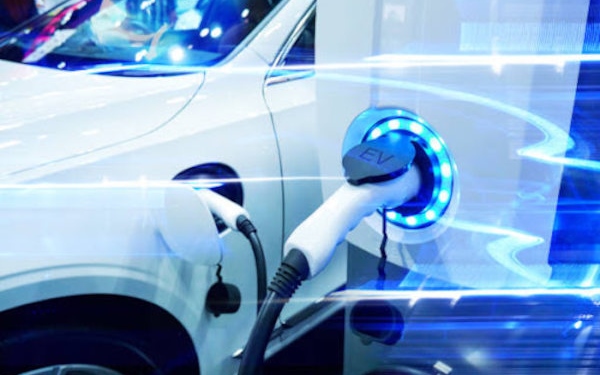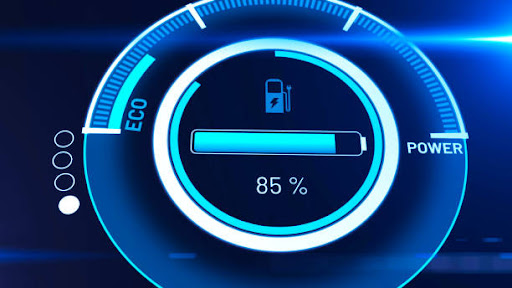Electric vehicles are Bhutan’s answer to air pollution
Air pollution by vehicles is a threat to Bhutan’s carbon-neutral status. But the Bhutanese have found a solution.

While Bhutan is many things—from idyllic to a spiritual mecca—their roads leave something to be desired. Bhutan is a mountainous country, with roads that snake with the varied terrain. Until recently, the roads were not paved, thus the lovingly dubbed “vomit comets”, minibuses of the late 1900s that made trademark wild turns at reckless speed.
Due to the topography of the region, the Bhutanese government has agonised over public transport for some time. The country has too many hills, ruling out trains, subways, or streetcars. The bus system has improved slightly from the “vomit comet” days, but only because the roads are now paved. Cars are still the most viable mode of transport in the country—provided you can afford them, of course.
These factors have led to an increased number of private vehicles in Bhutan. According to the Bhutan Sustainable Low-emission Urban Transport System report, the number of registered private cars in Bhutan has gone from 25,000 in 2000 to 893,000 in 2017. That is a 357% increase. For a population of 800,000, that equals one car for every ten people.
Air pollution in Bhutan
Bhutan relies heavily on hydropower, so most of the emissions can be traced back to road vehicles.
The effect of the over-congestion of vehicles on air quality can be seen in Thimphu, the capital of Bhutan. Within 12 years from 2007 to 2018, the pollution in Thimphu has doubled. Moreover, fossil fuels from cars add to the greenhouse gas emissions. The pollutants trap the air, raising the temperature of the city.
This is not ideal for the environment. To add to that, the petroleum to run the cars have to be shipped in from other countries which increases Bhutan’s dependency on outside sources.
Therefore, Tenzin Wangmo, the Chief Climate Officer of the National Environment Commission (NEC) declared expanding public transit to be the organisation's utmost priority.
Bhutan has pledged to remain carbon neutral. But according to Jurg Grutter, CEO of Grutter Consulting, a Swiss consulting firm that focuses on the transport sector and carbon finance, Bhutan’s vehicle emissions would triple by 2030 if they stay on the current trajectory. This is a threat to their carbon-neutral status.
As it is, Bhutan’s emissions have already crossed over to unhealthy. In 2016, the concentration of large particles Thimphu exceeded the health guidelines by the European Union (EU) and doubled that of the World Health Organisation’s (WHO).
The introduction of electric vehicles to combat growing emissions
As of 2018, commercial vehicles—20% of Bhutan’s vehicles—account for more than two-thirds of greenhouse gases in the country. Once the vehicles hit the road, removing them is costly and hard. Thus early action is required.
And Bhutan found an answer to this growing emissions problem: electric vehicles. But the transition has been anything but easy. An early attempt in 2014 to promote electric vehicles fizzled out due to misconceptions and lack of awareness.
Then in 2019, GEF AND UNDP resurrected the electric car programme. They had the goal of putting 300 electric taxis on the road by 2021. Even then, there were problems.
For one, many people lacked confidence in the technology. Convincing them was hard work. The team started an intensive education campaign through media interviews, schools, and offices.
While gaining the public’s trust was difficult enough, there was a bigger problem: cost. Electric cars are expensive. UNDP funded 20% of it for taxi drivers, but that wasn’t enough to cover the cost of the car. To cover the rest, the project manager, Phub Gyeltshen cooperated with the Royal Monetary Authority to establish loans that covered 70% of the cost of an electric car. This attracted more interested taxi drivers as they only had to pay 10% of the cost now.

The taxi drivers got to test drive the electric vehicles before purchasing them, and they were pleased with their drivability and range-per-charge.
But for the non-taxi drivers, owning an electric vehicle was heavy on the pockets. The upfront cost was high to begin with. It just wasn’t worth it.
As of 2020, 67 taxi drivers have bought electric vehicles. The vehicles were imported from Japan, Korea, and China.
On top of trust and cost, there was a third challenge: charging stations. Five charging stations were installed in 2015, but many more had to be installed. By now, 15 to 20 more stations should have been installed in six western districts and Phuentsholing in the south.
A report from the World Bank has estimated that 648 charging stations are needed across the country to support the demand. Just deploying 300 vehicles isn't enough; the whole charging infrastructure needs to be expanded.
UNDP funding stopped last year in 2021. Now, Bhutan has to find new sponsors if they wish to continue the electric vehicle programme.
Having said that, although electric taxis are a huge step forward, Bhutan still has many cars, and it will only get worse and worse. Therefore, the Bhutanese have turned their eyes on the next big thing: zero- and low-emission buses and urban tracking.




